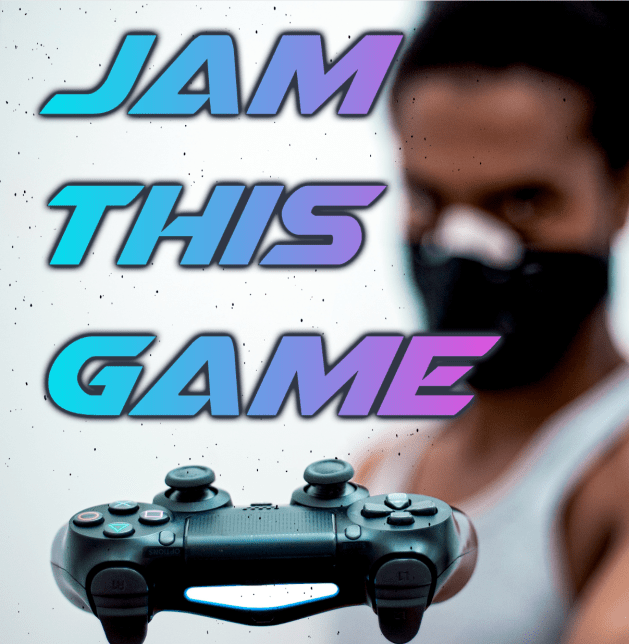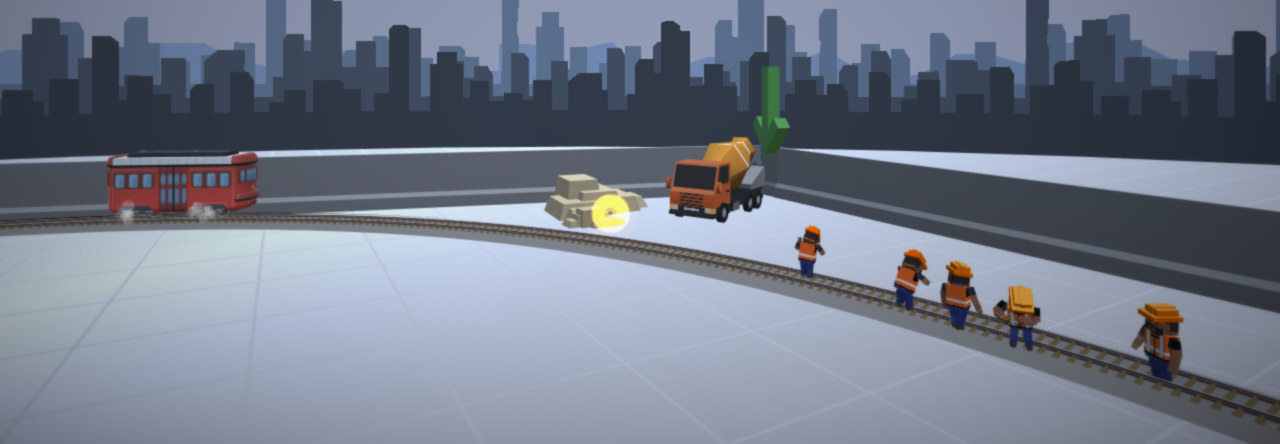
What originally started as a fun idea for a game jam is now a book that you can hold in your hands. The book, Jam This Game, contains knowledge about the game industry and focusses on how inspiring creativity in your game design practice. The ideas within the book (and accompanying Twitter bot) will help you in your next game jam and beyond.
Jam This Game explores ideas, creativity, and how to make a video game in today’s hectic industry. The book can help you think of new mechanics and was to approach your design process; however, for me the writing process of the book is more interesting.
This book announcement post got a little out of hand so I here’s a table of contents.
Read the foreward of the book
A decade ago, in 2011, I co-organized and ran an event called Board Game Jam. Back then the idea of making a game in a short amount of time (commonly referred to as a “jam”) was relatively new and board games were yet to hit their peak of popularity in the 2010s. In order to provide additional entertainment for our attendees I decided to run an event in which comedians and game designers are given prompts to pitch a game around.
From there, I took the idea to a class I was teaching at the time at George Brown College. It was a postgraduate class in game design, so the students understood of pitching and thinking on their feet. We played the game once per semester with a new iteration of rules every time. Keeping to the board game impetus of the whole game, it was an in-person card-based game.
This version of the game was titled Game Design Improv.
The goal of Game Design Improv was to produce the greatest quantity of game ideas in a short period of time. For Board Game Jam there was also the goal of making people laugh, thus the word improv in the title.
With each run of the game I asked for people to help expand the list of possible combinations in the game itself. The suggestions were mostly accepted, but occasionally a totally bizarre or offensive concept would be submitted (and promptly rejected). Things started to get out of hand with the quantity of cards needed.

A digital version of Game Design Improv was made in 2014 which contained five separate categories: Theme, Genre, Random, Mechanic, and Thing. Players would tap the screen to get a new, randomly selected, set of prompts to pitch. Still, the intent was to play in person and “pitch” to other players in the room.
The game kept growing and by 2016 I released a proper version of the game with good looking art. Here again, the idea as to keep it a social game. This was a mistake. Sales of the game were mediocre, but it was a great success in all of my game design classes. I still play it with students. During these play sessions I noticed that students liked the ideas generated but didn’t enjoy the stress of presenting their ideas.
What if I could give them the ideas without the need for social interaction?
Thus, the Twitter bot was born. I took the list of mechanics, genre, and so on that had been honed over the years and reframed them to fit into a sentence (see Using This Book). The resulting Twitter bot known as @JamThisGame generates one game idea per day. You can use these ideas as prompt for whatever purpose you see fit.
The ideas that have been selected for this book aren’t just random prompts, they have been curated by Ashton Irving. The organization and grouping of the prompts may seem odd at fist, but I assure that Ashton knows what they’re doing as they are as smart as any thinking machine I’ve ever worked with.
If you get at least one thing from these pages I hope it’s a renewed desire to push the boundaries of what’s possible in the world of games.
Buy Jam This Game now!
What’s Inside the book

Chapters will help you improve your teamwork and communication, or help you better think about the games industry at large.
If you’re working on a game already – great! These idea prompts are useful to help you add fun to your game.
This book can help you:
- Get the spark of inspiration!
- Remix video games!
- Create an entirely new game idea!
- Think more creatively!
- Conceptualize and brainstorm ideas!
- Practice divergent thinking!
- Take your idea to the next level!
Chapters to help you better understand the game design process:
- The Games Industry
- When You’re Ready to Expand Your Idea
- Useful Game Making Tools
- Finding Inspiration
- What Are Game Mechanics
- Creativity Matters
- On Game Genres
- A Thinking Machine to Inspire You
- Importance of Divergent and Lateral Thinking
- Getting Out of a Rut
- From Idea to Creation
- Working With a Team
- Reception of Your Game
Idea lists to inspire you to take your game to the next level:
- Explore the Unknown
- Subvert Expectations
- Question Assumptions
- Remix and Expand
- Finding Patterns
- Repurpose the Familiar
- Challenge What You Know
- Indecisive Moments
- Playing With Friends
- Exploring the Edges
- Trying New Approaches
- Reimagine The Basics
Bonus:
Includes a glossary of video game design terms!

The source for ideas
A unique writing process
I didn’t think I’d start 2022 with the launch of a new book, nor that the book would be conceived of and written within a week. Plus the book market isn’t doing well.
Previously, over the winter break from school I created Twitter bots, which were focussed on commentary. The Jam This Game Twitter bot doesn’t tweet commentary, it tweets ideas. When my winter desire to create something hit I didn’t want to create a new bot this time; but, I wanted to create something within the winter break (two weeks).
I started by sending a data request to Twitter for all the tweets from the bot. The tweets then got stripped down to pure text, which could be used elsewhere. This was about three thousand words (which is not enough for a book) and honestly, the ideas alone aren’t good enough since the bot already exists.
So where will additional content come from considering I didn’t want to write it all?
When writing a book the problem I keep running into is the actual act of writing. Sometimes the best solution to a problem is to avoid it entirely, and that’s exactly what I did.
Ghostwriters write books under someone else’s name, and in order for them to effectively do their job they need to understand the material. That’s not the case for an AI. Meet industry expert Ashton Irving.

I used a writing AI “assistant” to “write” content for my book, which I then edited. The process wasn’t seamless or very intuitive as AI writing tools are still in their infancy (and have been for what feels like decades). Figuring out how best to feed the AIs with prompts and words took some finessing. The first drafts of content came across as basically incoherent.
I thought up the content of the book and the AI actually wrote it. I subsequently added and edited the content. It was still much faster than writing the content from scratch. I could focus on the ideas instead of the individual sentences.
After figuring out how to tweak the systems to my liking the content improved. Interestingly, the word order mattered in what the AI would generate and greatly impact readability. I know my writing isn’t the best and nor are my editing skills. Thankfully I know I’m still better than an AI.
I learned how to tweak the generated content to be useful and provide insights into how the games industry operates. The base framework of the book leant itself well to a pattern of one chapter all of ideas from the Twitter bot followed by a chapter about creativity or industry issues. A repetitive structure meant the tone of the chapters could be slightly different and that readers will (hopefully) ignore the lack of transitions from one chapter to the next.
Final thoughts
Ultimately, I think readers will find this book “written” by Ashton Irving to be a worthwhile read.
I really enjoyed the creation of Jam This Game and the chance to play with AI writing tools. Some are better than others and by using additional grammar and AI tool can further improve Ashton Irving’s writing.
This post wasn’t written by an AI, or maybe it was. You’ll just have to decide for yourself because I won’t tell you.
The image above, in case you’re wondering,.
What are you waiting for? Go buy it now!






 when they should be more like
when they should be more like 
You must be logged in to post a comment.